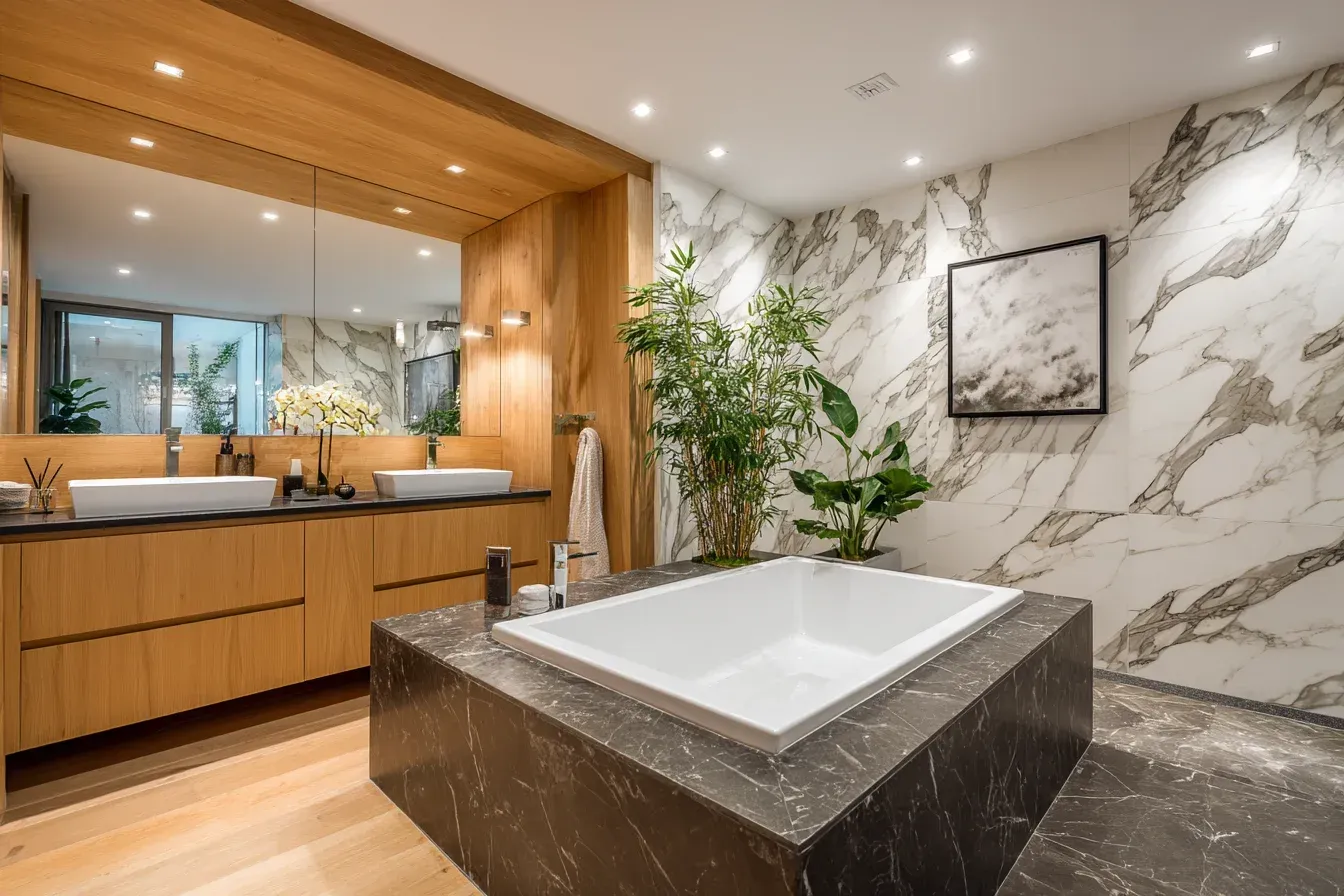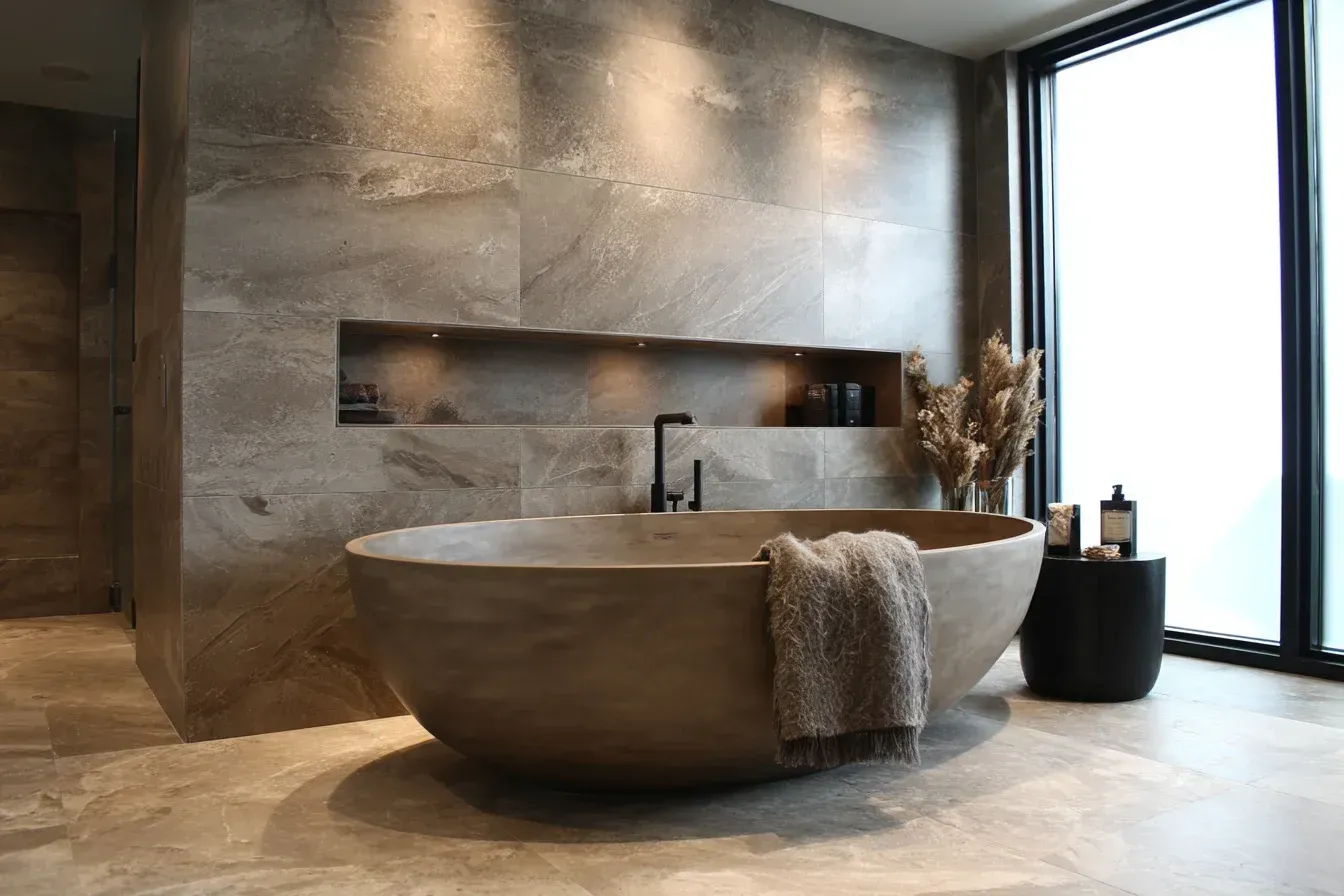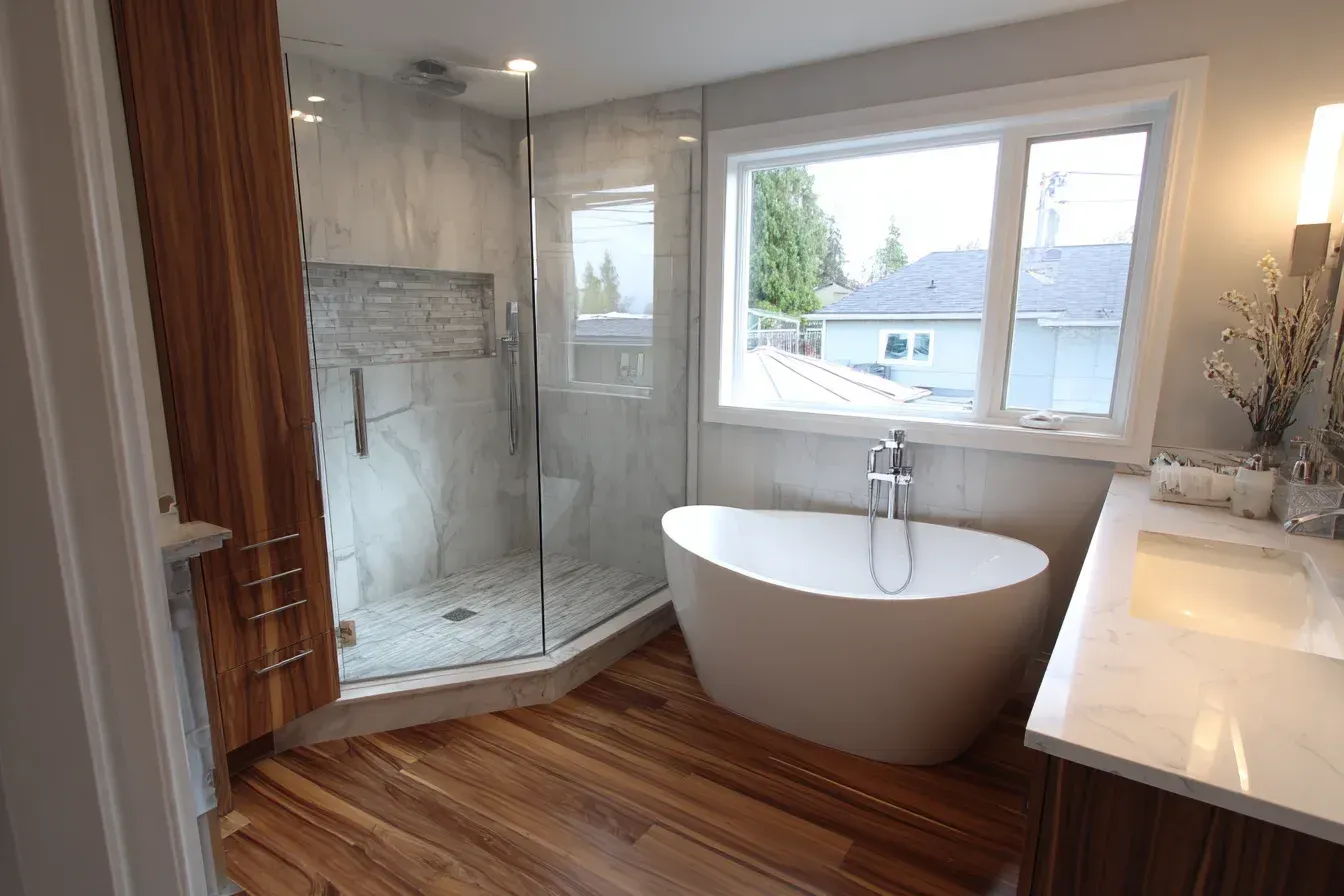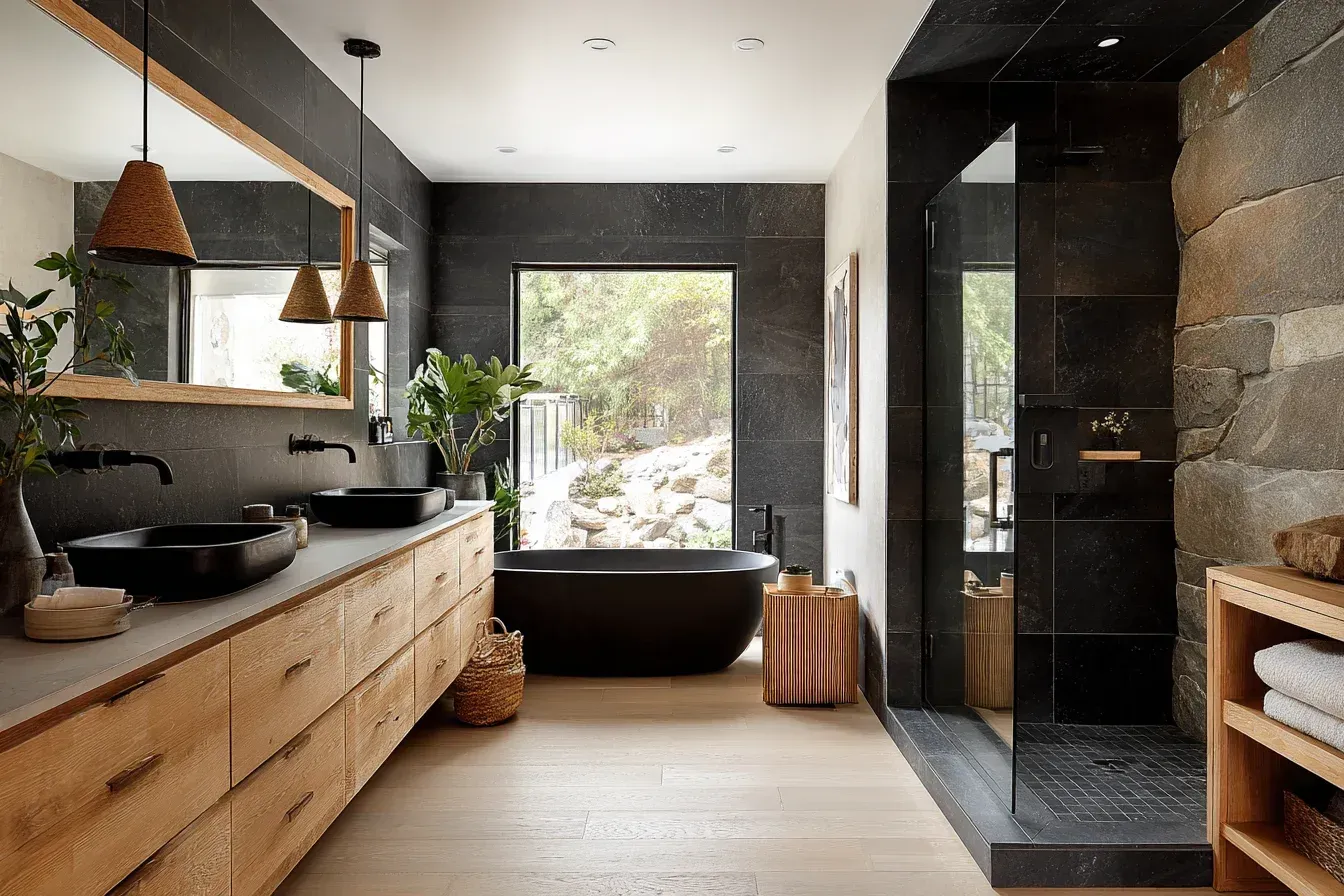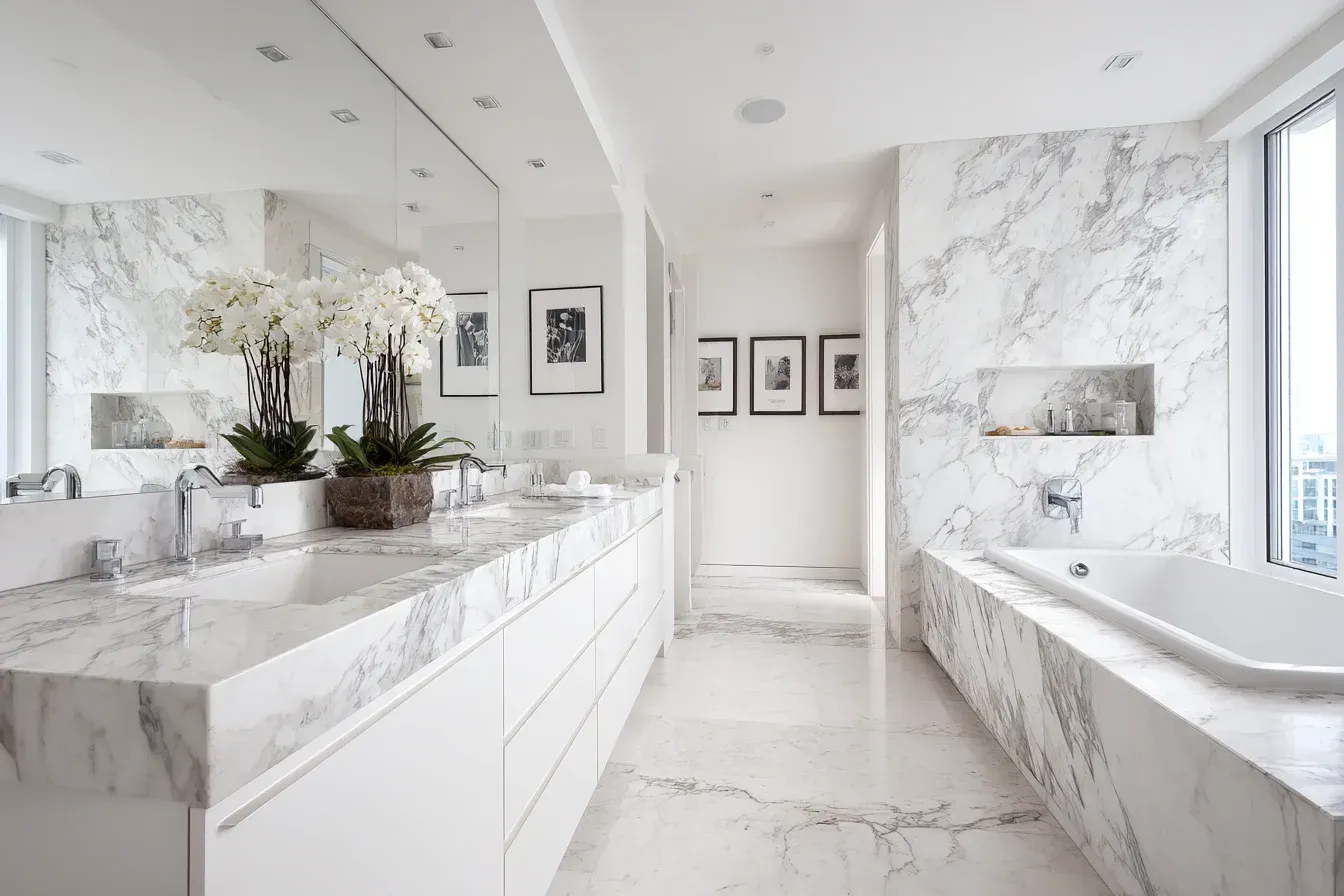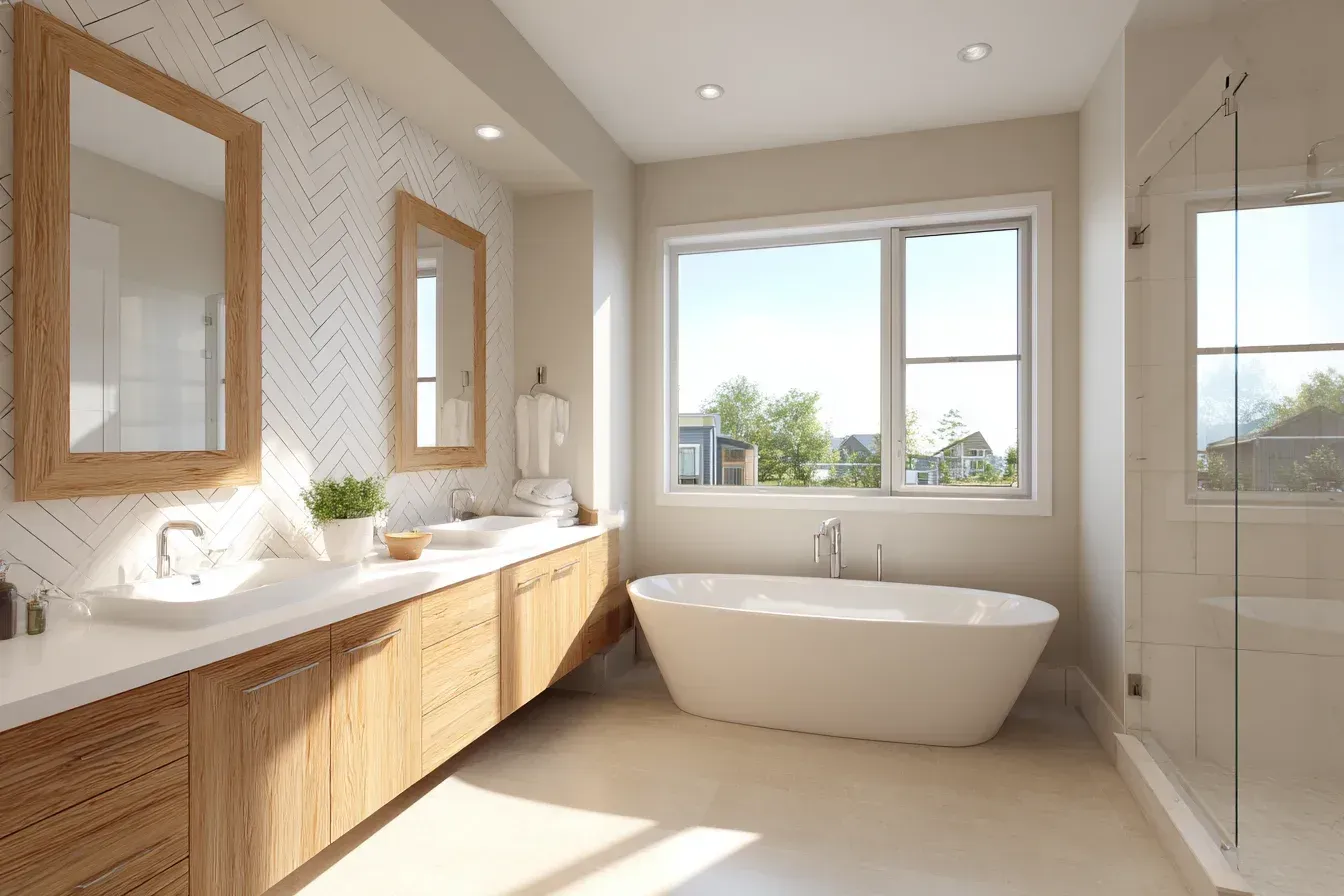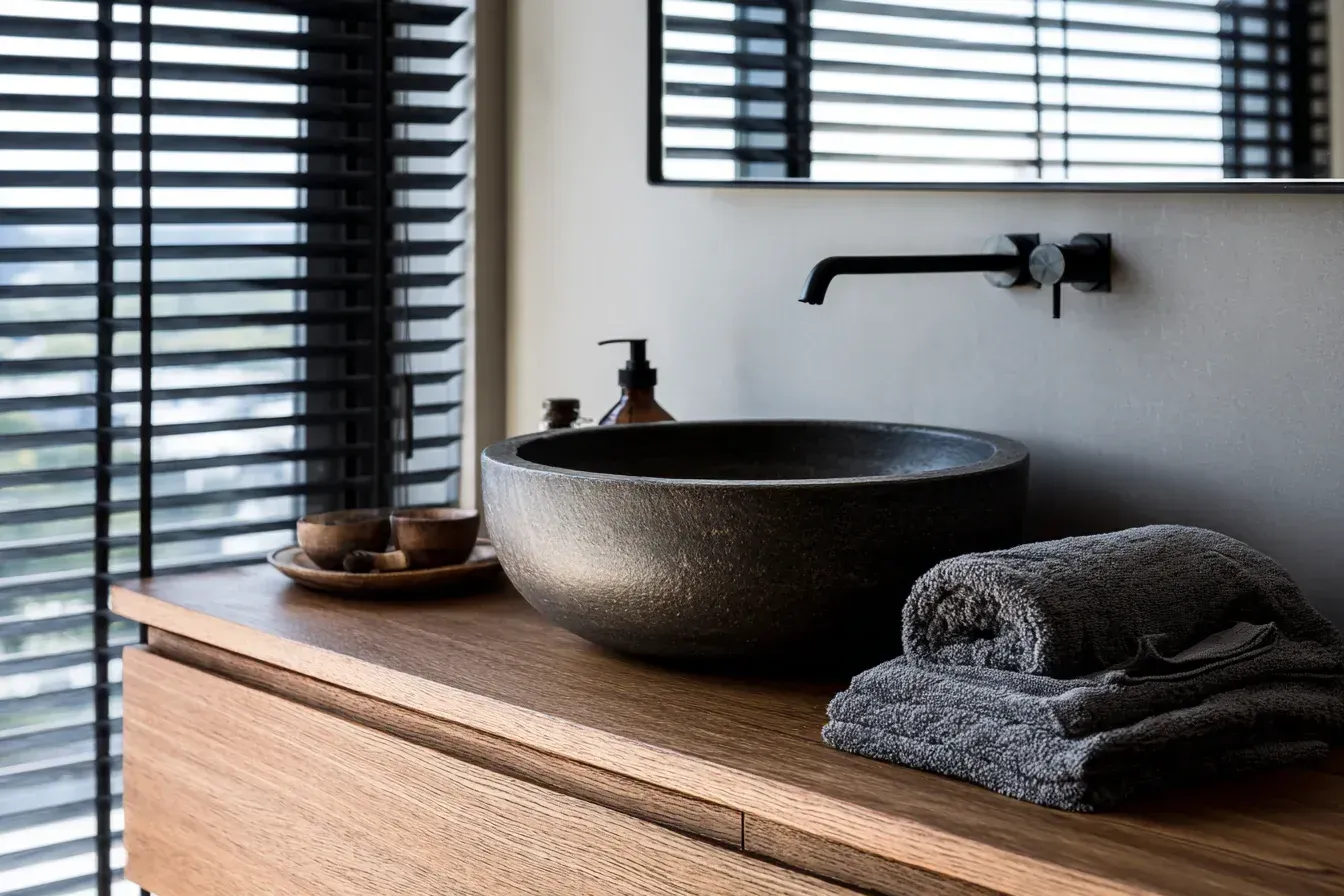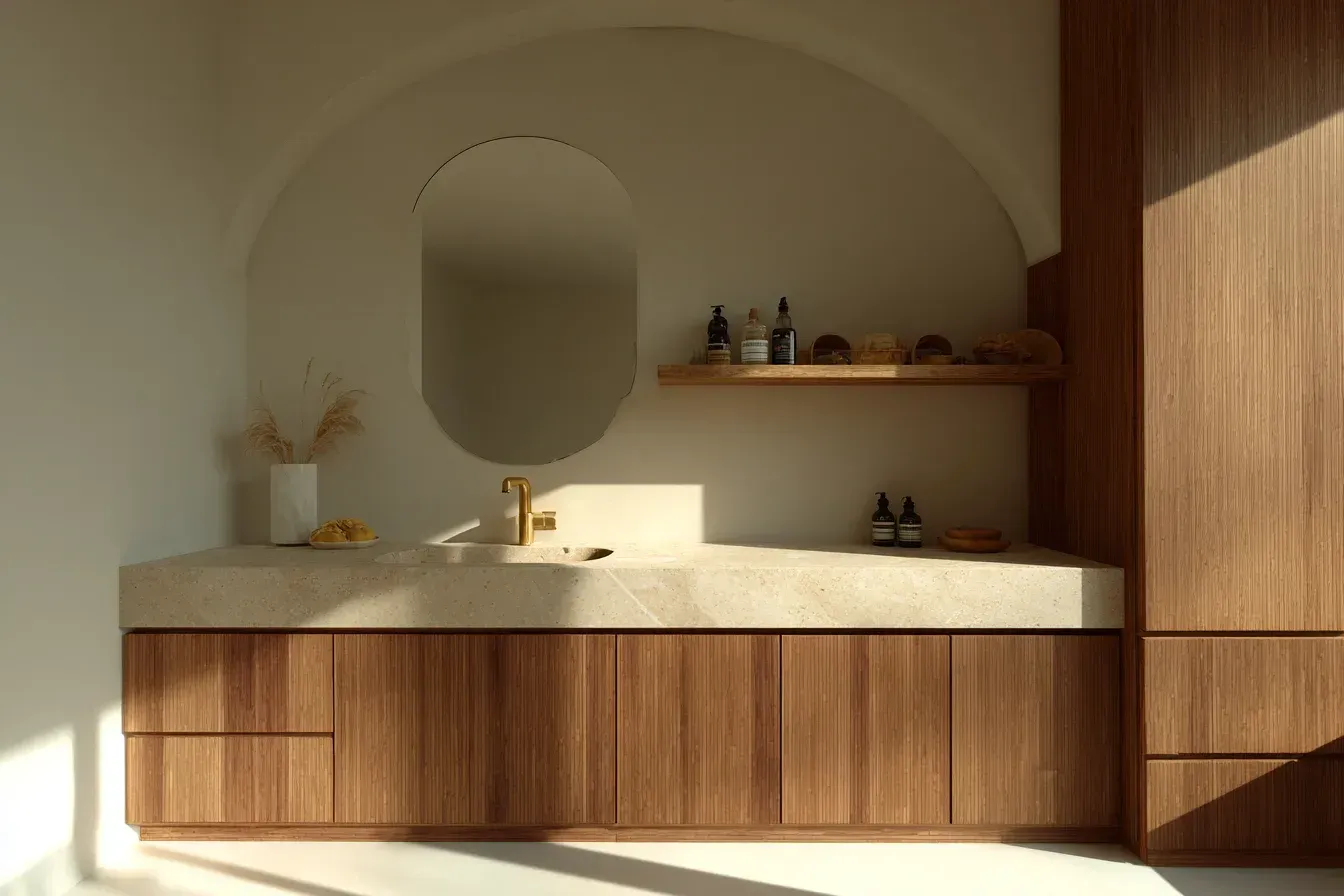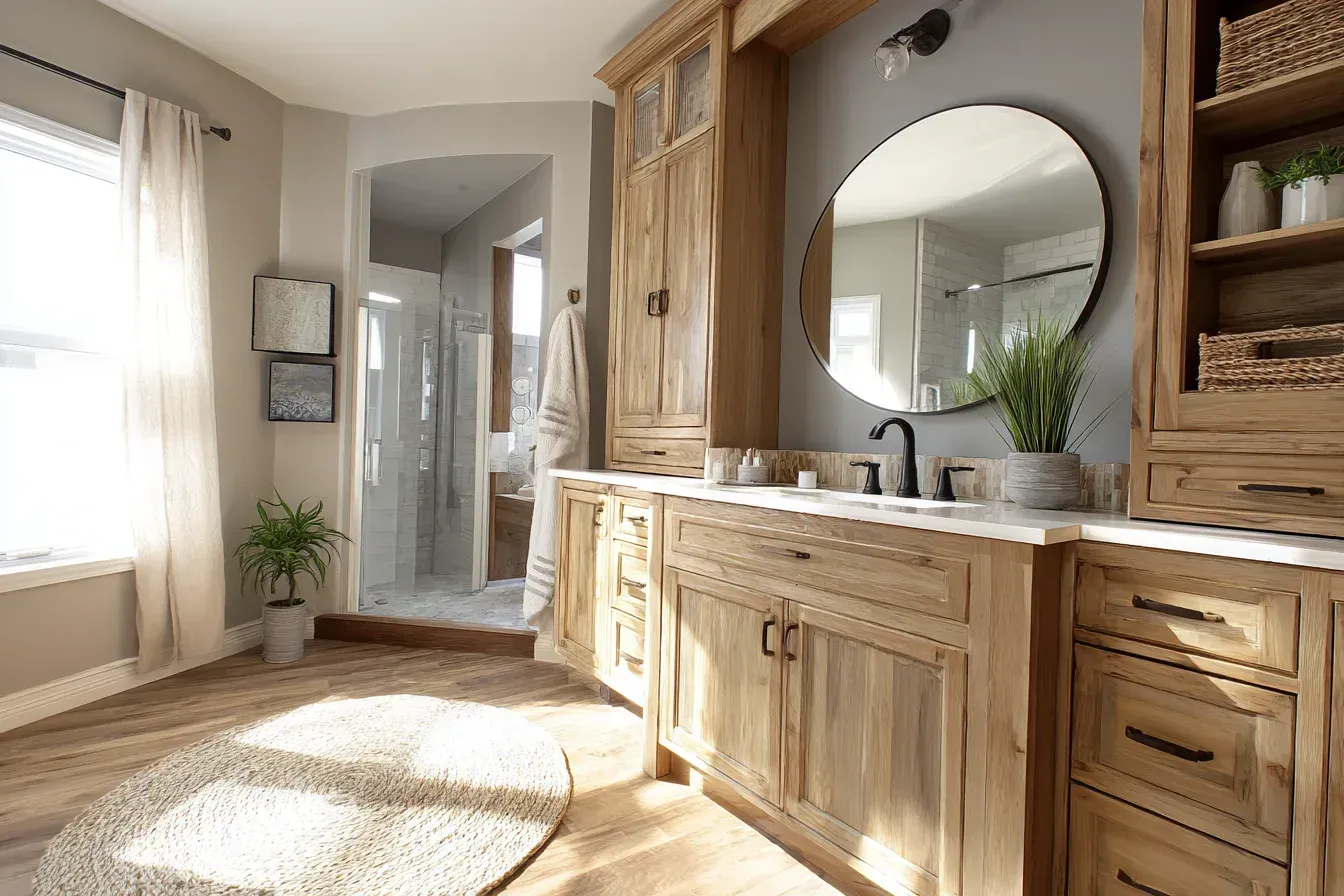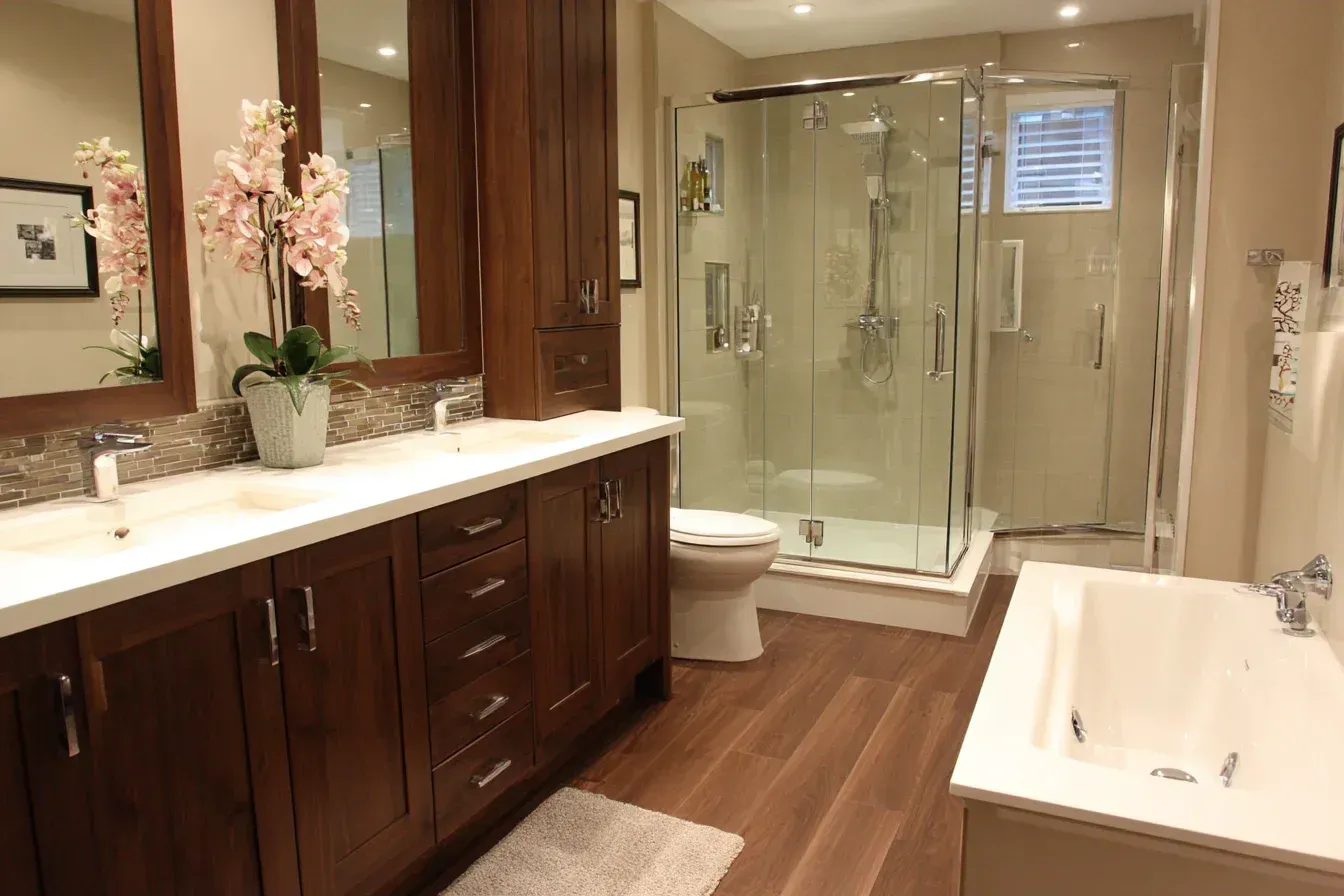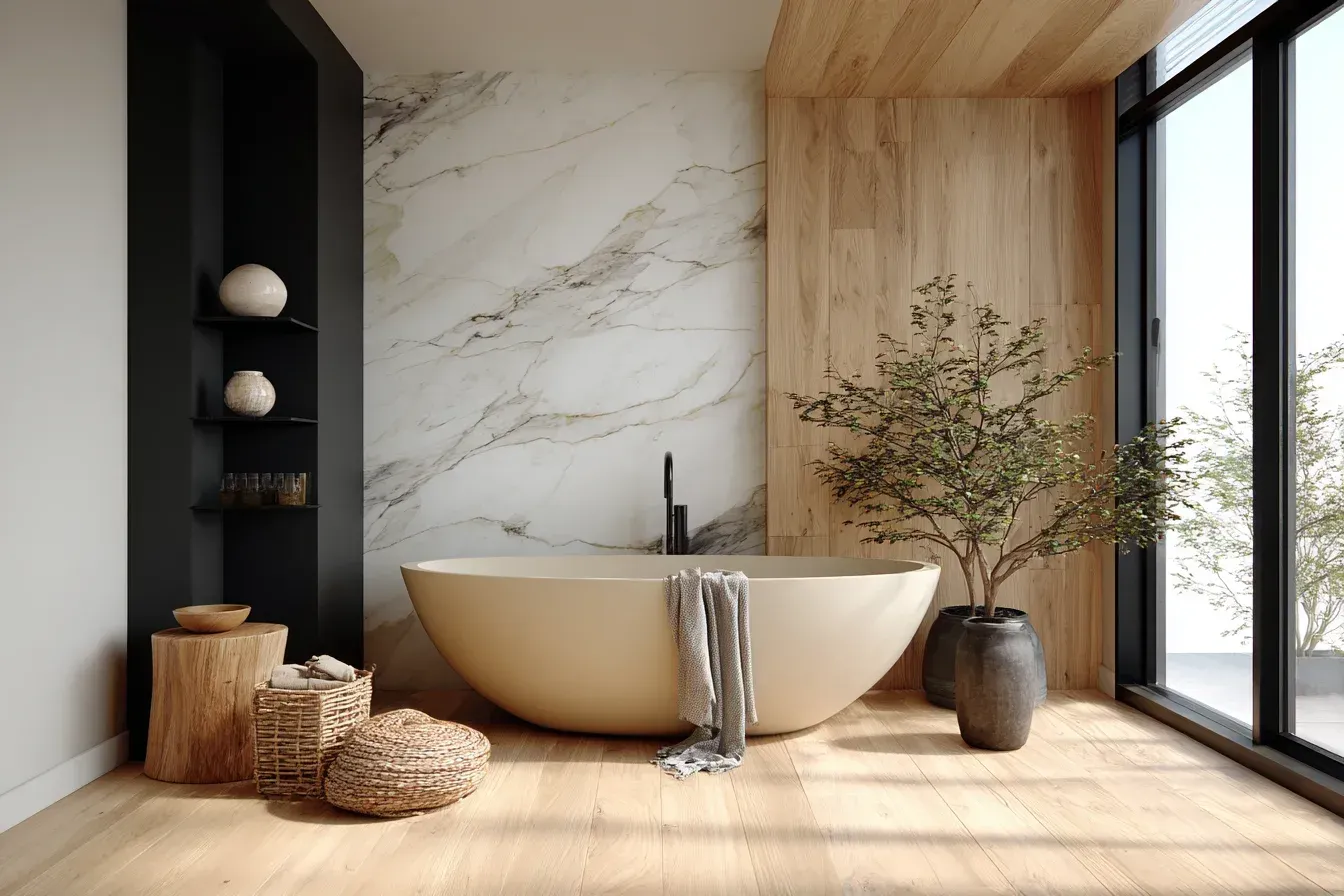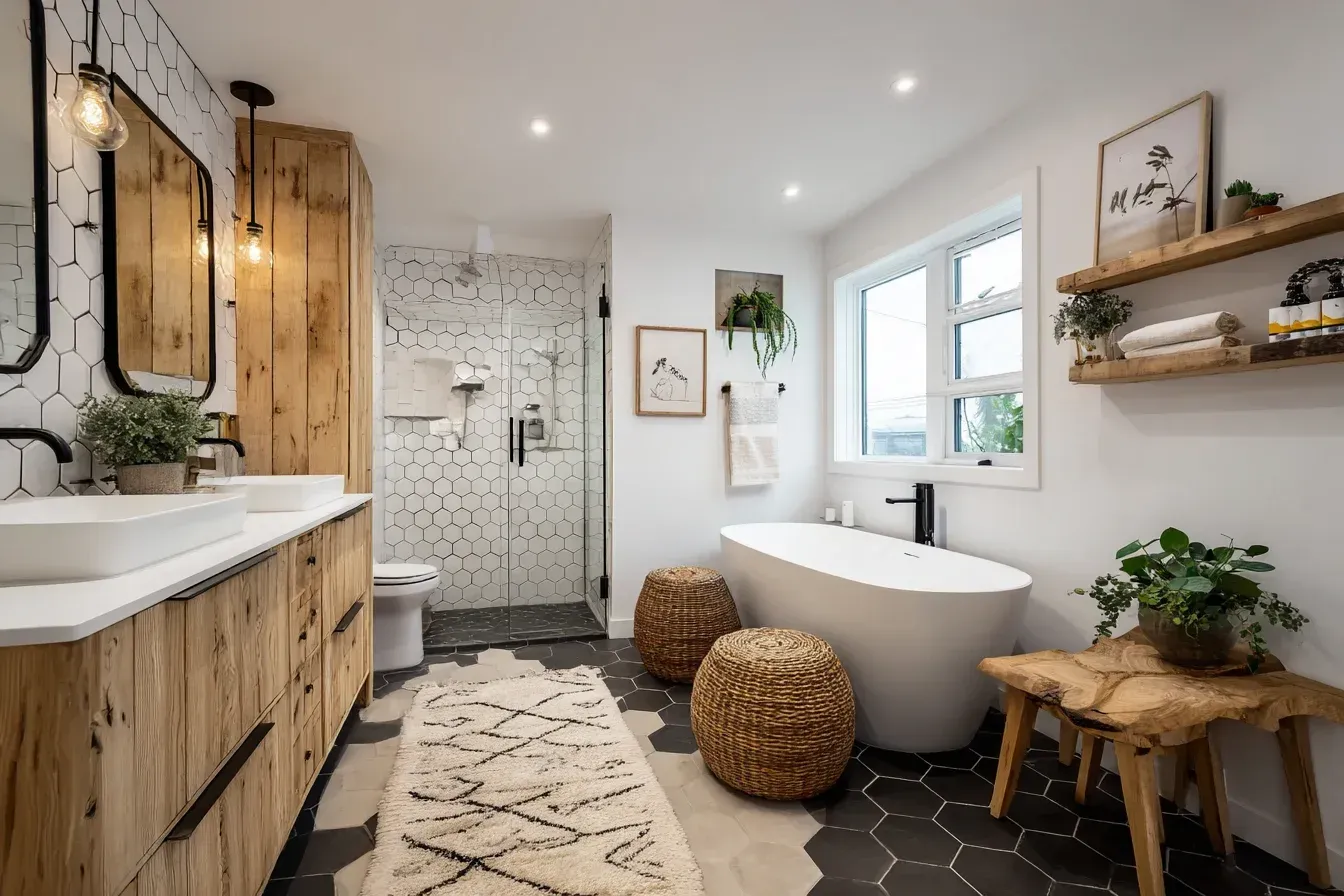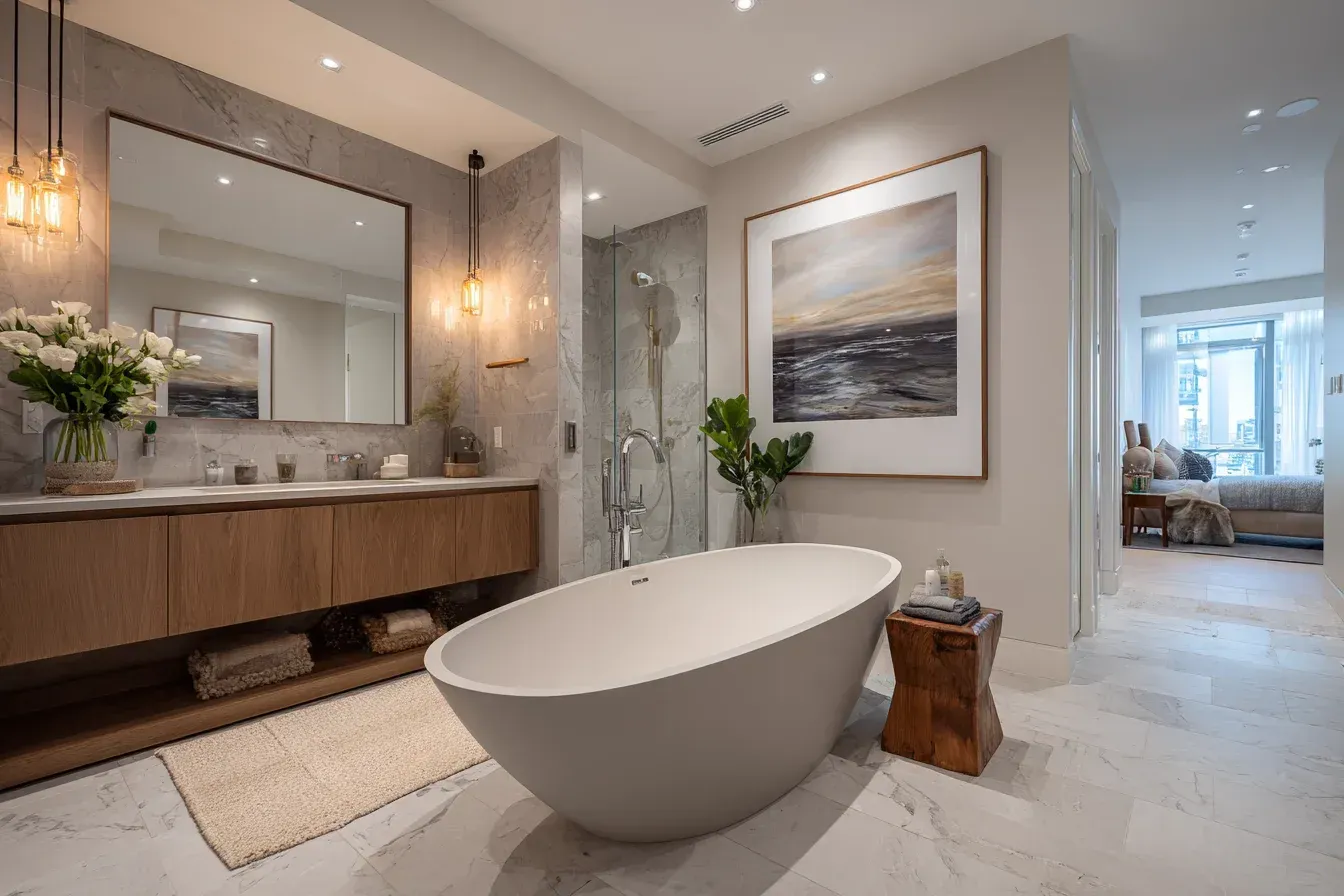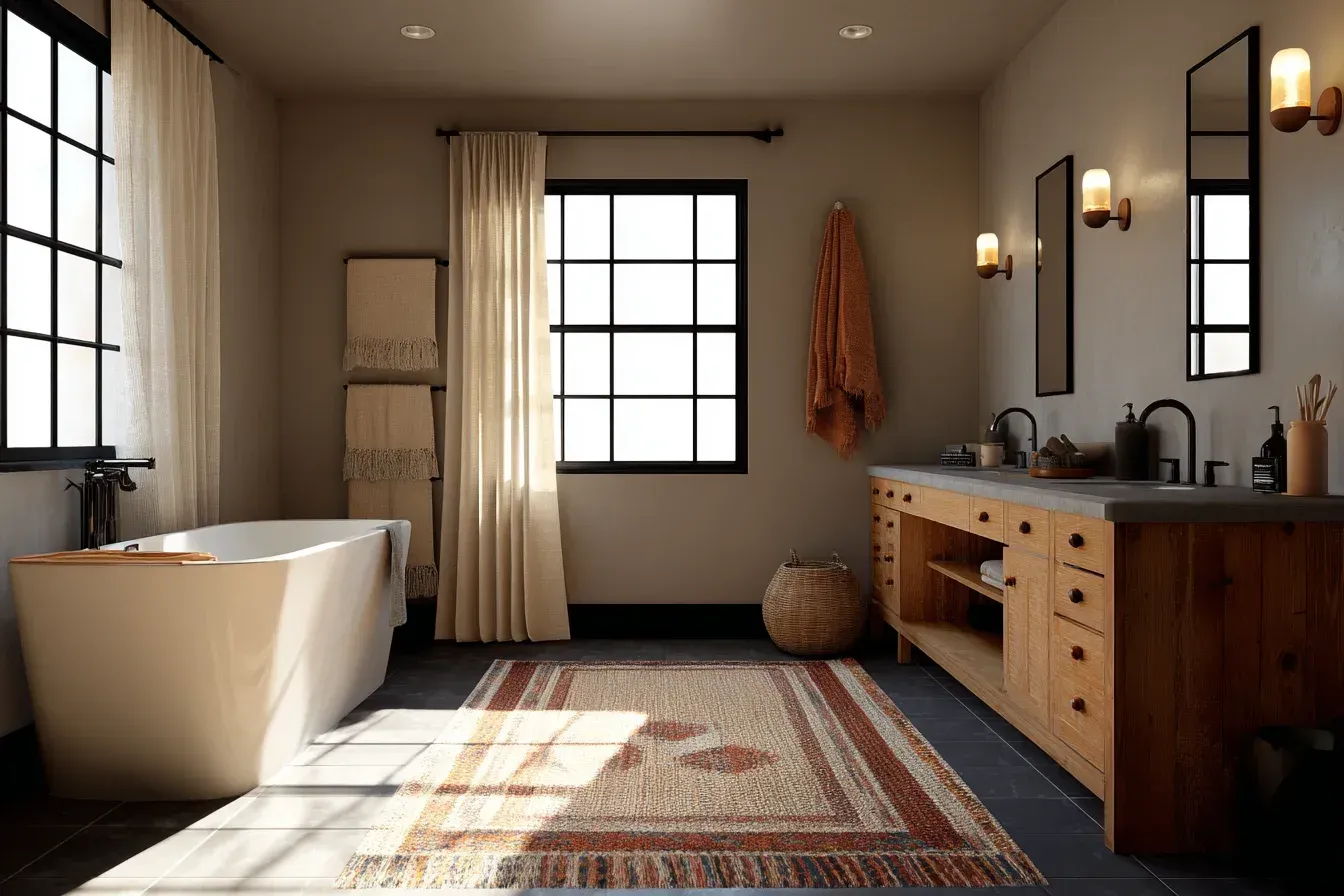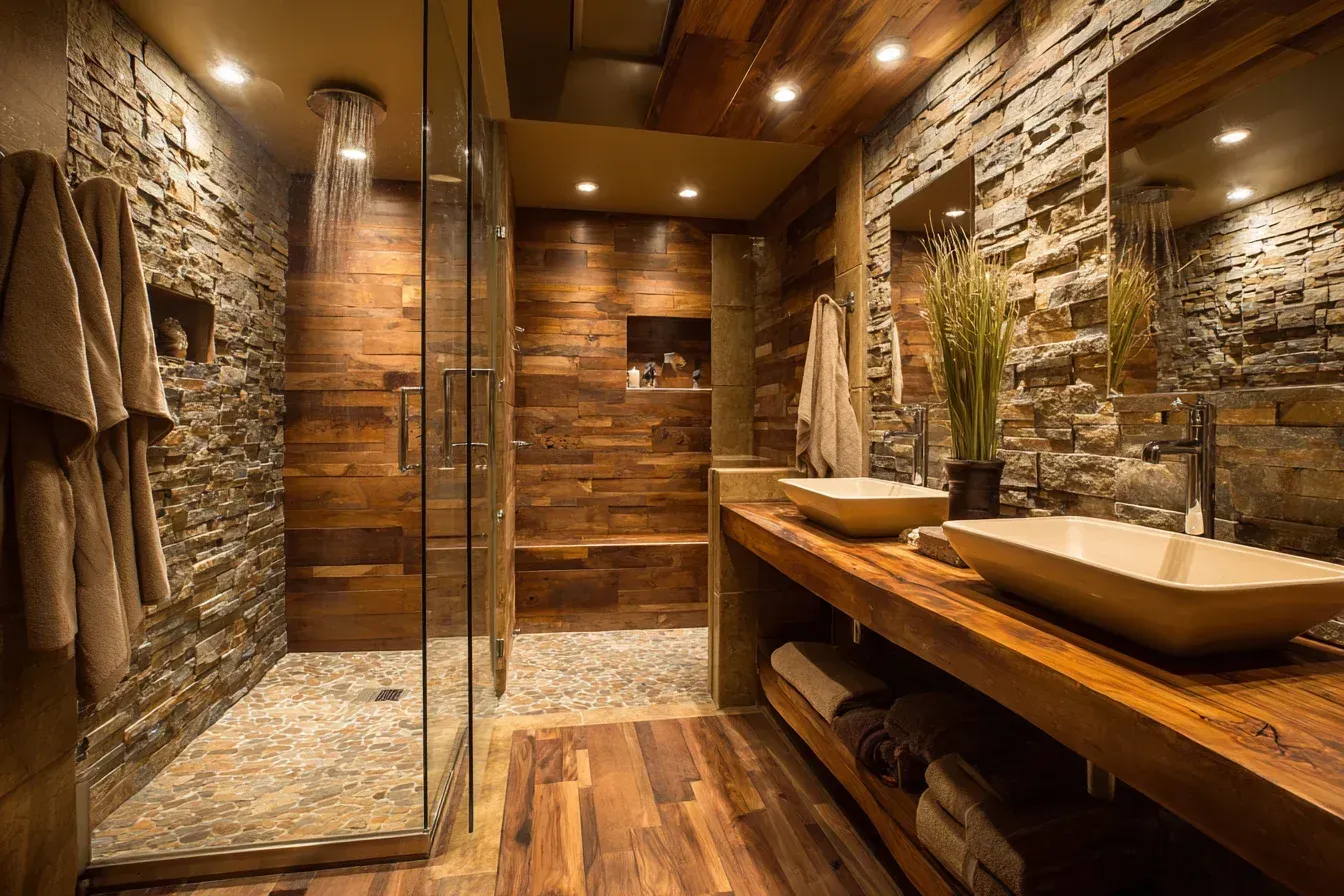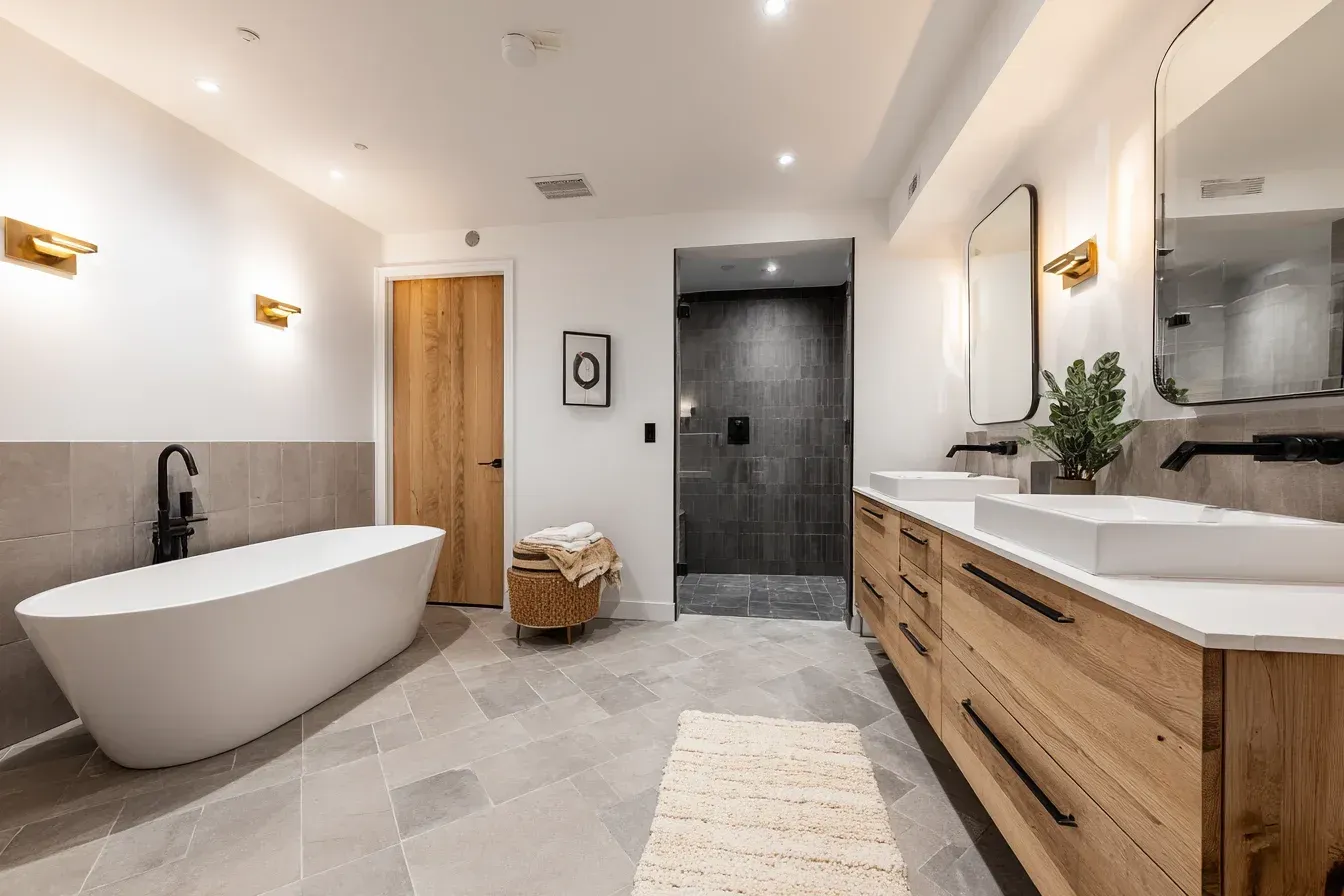The Best Waterproof Materials for Bathroom Remodeling
Why Waterproof Materials Matter in Bathroom Renovations
Bathrooms face more moisture stress than any other room in the house.
Poor waterproofing can cause:
- Mold and mildew
- Rotting subfloors
- Tile failure
- Bubbling paint
- Peeling finishes
- Musty smells
- Leaks into ceilings and adjacent rooms
A properly waterproofed bathroom is not just safer—it lasts longer, stays cleaner, and maintains its value.
1. Porcelain Tile: The Gold Standard for Waterproof Bathroom Surfaces
Porcelain tile is one of the most water-resistant, durable, and versatile materials for bathroom remodeling.
Why porcelain tile is the best choice
- Extremely dense → absorbs less than 0.5% water
- Stain-resistant
- Scratch-resistant
- Available in countless styles (marble-look, stone-look, wood-look)
- Works for floors, walls, and showers
- Easy to clean
- Long lifespan
Best uses
- Shower walls
- Shower floors (with textured/matte finish)
- Bathroom floors
- Accent walls
- Backsplashes
Porcelain tiles outperform ceramic in moisture-heavy environments.
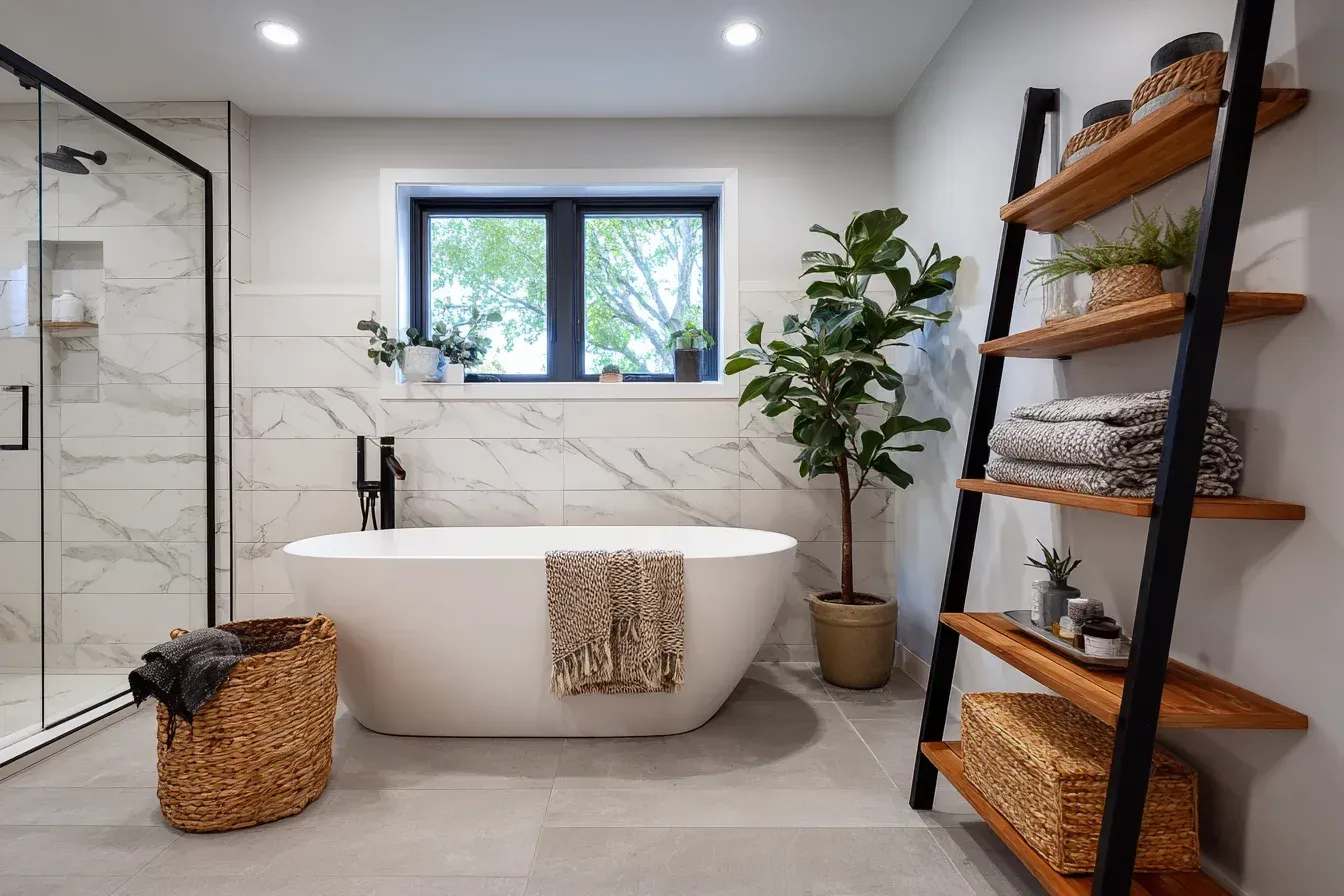
2. Ceramic Tile: A Budget-Friendly, Water-Resistant Option
Ceramic tile is a more affordable waterproof surface, ideal for walls and low-traffic areas.
Benefits
- Cost-effective
- Wide range of colours and patterns
- Smooth, easy-clean surfaces
- Perfect for powder rooms or wall surfaces
Limitations
- More porous than porcelain
- Not ideal for high-moisture floors
- Prone to chipping if low grade
Best uses
- Bathroom walls
- Backsplashes
- Low-moisture areas
Ceramic tile is a great option when budget and style flexibility matter.
3. Luxury Vinyl Tile or Plank (LVT/LVP): 100% Waterproof Flooring
Modern vinyl flooring has evolved into a highly durable waterproof option.
Why LVT/LVP works so well in bathrooms
- Completely waterproof
- Warmer and softer underfoot than tile
- Easy DIY installation
- Low maintenance
- Affordable
Best uses
- Bathroom floors
- Powder rooms
- Kids’ bathrooms
- Rental properties
Vinyl flooring offers great value but should not be used inside showers.
4. Natural Stone (With Proper Sealing)
Stone adds timeless luxury but requires proper sealing and maintenance.
Popular options
- Marble
- Slate
- Travertine
- Granite
- Limestone
Pros
- Natural beauty
- Unique patterns and textures
- High-end appeal
Cons
- Porous unless sealed
- Sensitive to acidic cleaners
- Can be slippery when polished
Best uses
- Feature walls
- Bathroom floors (sealed)
- Shower walls (sealed frequently)
Stone is beautiful and durable when maintained properly.
5. Acrylic Shower Panels: A Seamless, Waterproof Alternative to Tile
Acrylic shower surrounds are a low-maintenance, fully waterproof solution.
Benefits
- No grout lines → no mold
- Extremely easy to clean
- Fast installation
- Affordable
- Lightweight and durable
Best uses
- Shower walls
- Bathtub walls
- Prefabricated shower kits
Perfect for rental units or homeowners who want low maintenance without constant scrubbing.
6. Solid Surface Shower Panels (Cultured Marble, Onyx, Quartz)
These premium panels offer seamless waterproofing with a luxury aesthetic.
Benefits
- Waterproof, non-porous surface
- Customizable sizes
- Sleek modern look
- Very low maintenance
- No grout
Best uses
- Walk-in showers
- Tub surrounds
- Custom bathroom walls
Solid surface panels create a clean, spa-like appearance with zero grout upkeep.
7. Glass Shower Doors and Enclosures
Glass is fully waterproof and makes bathrooms feel open and modern.
Benefits
- Prevents water escape
- Resists mold (no fabric like old shower curtains)
- Enhances light flow
- Available in clear, frosted, or textured finishes
Best uses
- Walk-in showers
- Tub-shower combos
- Corner showers
Choose tempered safety glass for maximum durability.
8. Waterproof Membranes (Behind the Tile): Schluter, Wedi, Kerdi, RedGard
Tile isn’t waterproof—the membrane behind it is.
Two main types:
Sheet Membranes (Schluter Kerdi, Wedi)
- Applied behind tile
- Completely waterproof
- Reliable for showers and wet zones
Liquid Membranes (RedGard, Hydro Ban)
- Rolled or painted on
- Form a rubberized waterproof barrier
Where these must be used
- Shower walls
- Shower floors
- Bathroom wet zones
- Behind backsplashes
- Under tile floors (especially with heated floors)
Good waterproofing is the most important step in any remodel.
9. Quartz Countertops: Waterproof, Durable, and Low Maintenance
Quartz is one of the best countertop materials for bathrooms.
Benefits
- Non-porous
- Resistant to stains, mold, and bacteria
- Easy to clean
- Available in many patterns
- More durable than marble
Best uses
- Bathroom vanities
- Makeup areas
- Integrated sinks
Quartz is superior to granite or marble in moisture-heavy spaces.
10. Engineered Stone Sinks and Countertops
These are made of crushed stone and resin.
Benefits
- Waterproof
- Seamless sink-countertop integration
- Resistant to stains and scratches
- Modern look
Best uses
- Vanities
- Vessel sinks
- Integrated countertops
Great for durability and design.
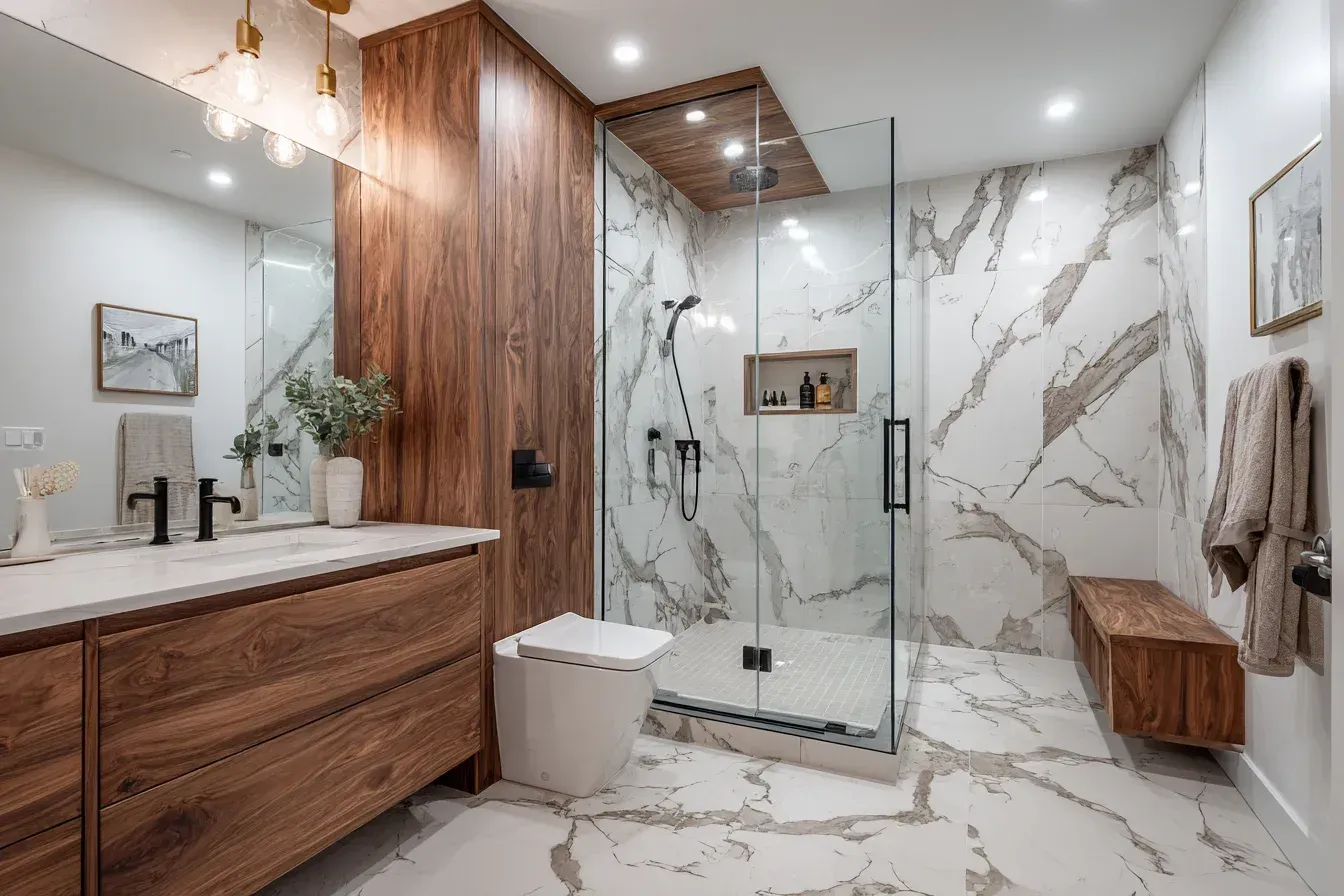
11. PVC or Composite Trim and Moulding
Wood trim does not belong in high-moisture areas unless sealed heavily.
PVC trim advantages
- Waterproof
- Won’t swell, rot, or warp
- Paintable
- Perfect for baseboards near showers or tubs
PVC is the best choice for bathroom trims and casings.
12. Waterproof Paints and Primers
Bathrooms need special paint formulas.
Choose:
- Mold-resistant paint
- Mildew-proof primer
- Semi-gloss or satin finish
Benefits
- Easy to clean
- Resists moisture
- Protects drywall
Paint seems small, but it’s critical for long-term durability.
13. Stainless Steel Hardware and Fixtures
Avoid cheap metals that corrode over time.
Stainless steel benefits
- Rust-resistant
- Waterproof
- Easy to clean
- Long-lasting
Best places to use stainless steel
- Shower fixtures
- Towel bars
- Grab bars
- Vanity hardware
Quality hardware prevents corrosion and maintains a clean look.
14. Waterproof Bathroom Wall Panels (PVC, SPC, Composite)
Modern wall panels mimic tile without the maintenance.
Benefits
- 100% waterproof
- Lightweight
- DIY-friendly
- No grout lines
- Affordable
Ideal uses
- Basement bathrooms
- Rental units
- Budget-conscious remodels
Panels are growing in popularity for low-maintenance designs.
15. Sealed Grout or Epoxy Grout
Traditional cement grout absorbs water—epoxy grout does not.
Why epoxy grout is superior
- Waterproof
- Stain-resistant
- Doesn’t crack easily
- Mold-resistant
Best uses
- Shower floors
- Shower walls
- High-moisture zones
Epoxy grout costs more but lasts much longer.
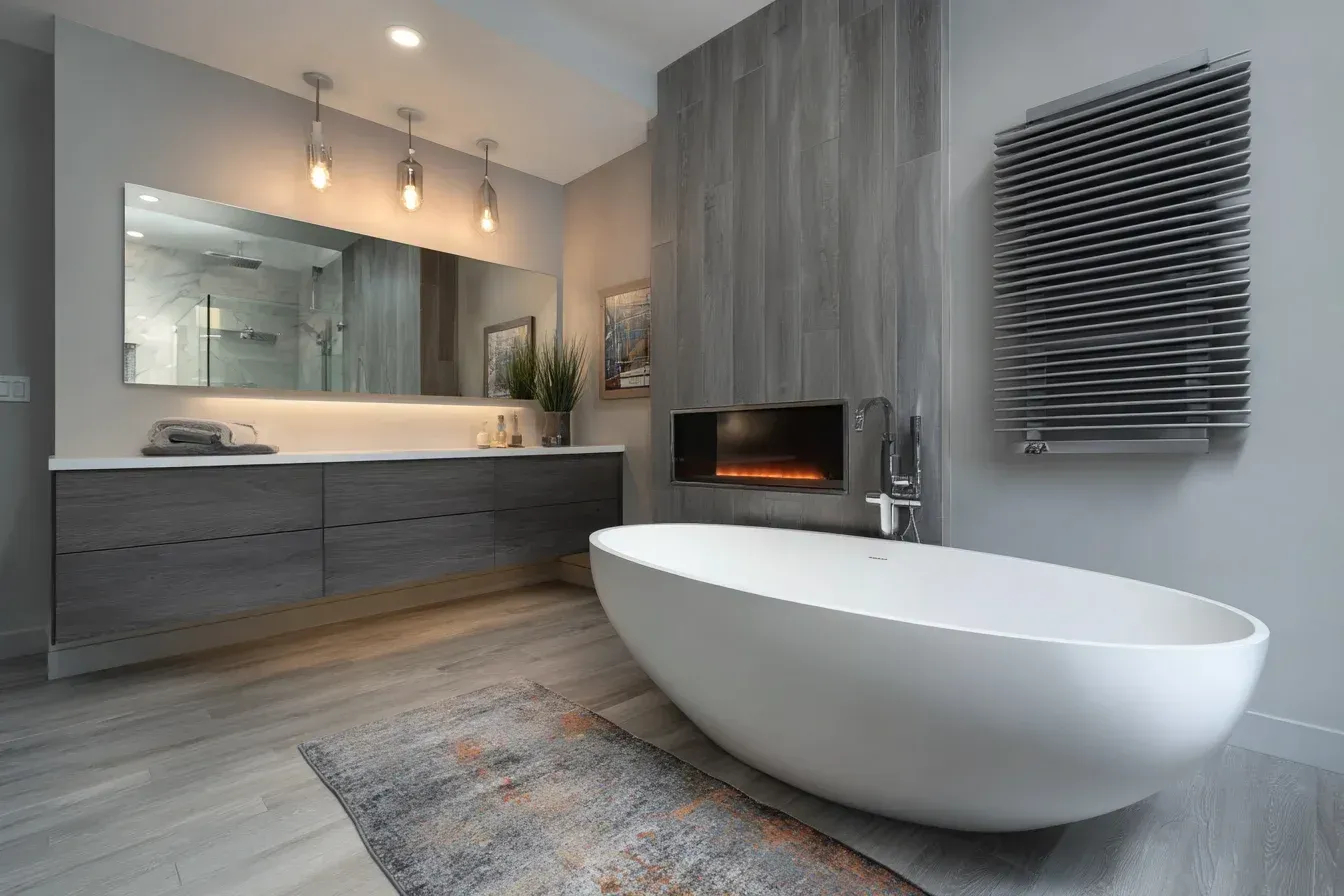
Final Thoughts: The Right Waterproof Materials Make Your Bathroom Last
Choosing the right waterproof materials is the key to a durable, safe, and long-lasting bathroom renovation.
Whether you're updating a shower, replacing flooring, or redesigning an entire ensuite, materials like porcelain tile, quartz, waterproof membranes, and solid surface panels ensure your bathroom withstands moisture and daily use for years.
A well-waterproofed bathroom:
- Prevents mold
- Reduces maintenance
- Increases property value
- Creates a healthier environment
- Protects your investment
Smart material choices today prevent expensive repairs tomorrow.
Recent Posts
